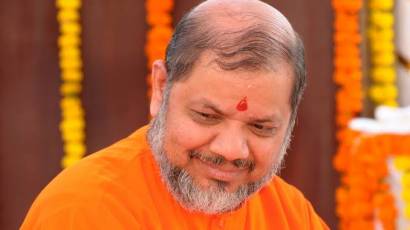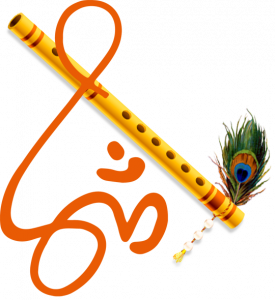by Pujya Guruji, Swami Tejomayananda

A 105-year-old man was asked the secret of his long life. He answered, “The secret is that I am not yet dead and that’s why I am living!” One who breathes is said to be living; even a person in coma is alive. A man earning to take care of basic needs like food, clothing, and shelter without any further aspirations also lives. Another type of living is of the extremely ambitious person who craves power, name and fame, and behaves like a bulldozer wanting to conquer the whole world.
The fourth type of living is when a person is greatly concerned about the happiness and welfare of other people, and places them before him or herself. Swami Chinmayananda said, “Since you are born, you have to die. But don’t die while living; live after you are dead!” Such a person not only blesses him or herself, but also blesses the entire world.
The most prevalent meaning of freedom is to be able to live according to the whims and fancies of the mind. On freedom Swami Chinmayananda said, “Not to do what we feel like doing is called freedom.” Please do not misunderstand. Otherwise you will say, “I felt like praying to God, but now I will not, as that is slavery!”
To appreciate the meaning of freedom we have to understand the meaning of bondage. Bondage is dependence on things without which one feels one cannot function. For example, some are bound by the first cup of tea or coffee in the morning. Everybody knows how deeply dependent and addicted we are to objects. When we go to bed, we must have a particular pillow; if the bed is changed, we can’t sleep; if the room is changed, we can’t sleep and so on.
Bondage is also caused in the mind due to our likes and dislikes. We like something so we say, “This is beautiful and joy-giving.” We dislike something else and say, “This is ugly and gives me sorrow.” These are nothing but our own mental projections.
The third factor pertains to the individual, or the “I” who has likes and dislikes. This “I” is called Ego (different from the common connotation of the word to mean pride or conceit). Ego is a sense of individuality arising from one’s identification with one thing or the other.
Bondage at the subtlest level is to identify ourselves with something that is not our true nature. Look at the body – it is our place of residence, our vehicle and the instrument through which we work in the world, but to think that we are the physical body is the first bondage. Even to consider it as ours is bondage. How much control do we have over it? Can I stop this body from the aging process? Can I control thirst, hunger or disease?
The second bondage arises from the first notion that ‘I am the body’. As a result of this thought, we want more and more comforts, pleasures, and security for it. Greater attachment to the body leads to greater desires. Since all our desires cannot be fulfilled we become unhappy, frustrated and depressed and thus sink into deeper bondage.
This is what is happening in life; we want happiness but are creating more sorrows for ourselves because of the erroneous belief that objects will make us happy. Vedanta states that if you can be happy without objects then you are free – that is real happiness.
One beautiful definition of knowledge states that non-insistence on any particular thing is a sign of knowledge. Insistence should be on abidance in one’s own true nature. However, as far as worldly matters are concerned one should show flexibility. A wise person realizes that there is no point in becoming inflexible in an ever-changing world. An incident from Kabirdas’s life will explain this point clearly. Some scholarly pundits (priests) became jealous of Kabirdas’ fame and honour. One day, a pundit approached him and expressed his wish to defeat him in a debate. Kabirdas promptly said, “Is that all! I accept my defeat. Why do I have to go through the lengthy process of a debate? The truth remains unchanged under all conditions. However, if you are bent upon having your own way, it’s fine.”
Such a person is free. He abides in the knowledge of the Self. There is no slavery to sense objects, to likes and dislikes or to the idea of the ego. The wise person lives with everything, faces all types of conducive and non-conducive situations and remains ever free. This is truly living in freedom.
Published in Sikkim Express on 11 March 2022

